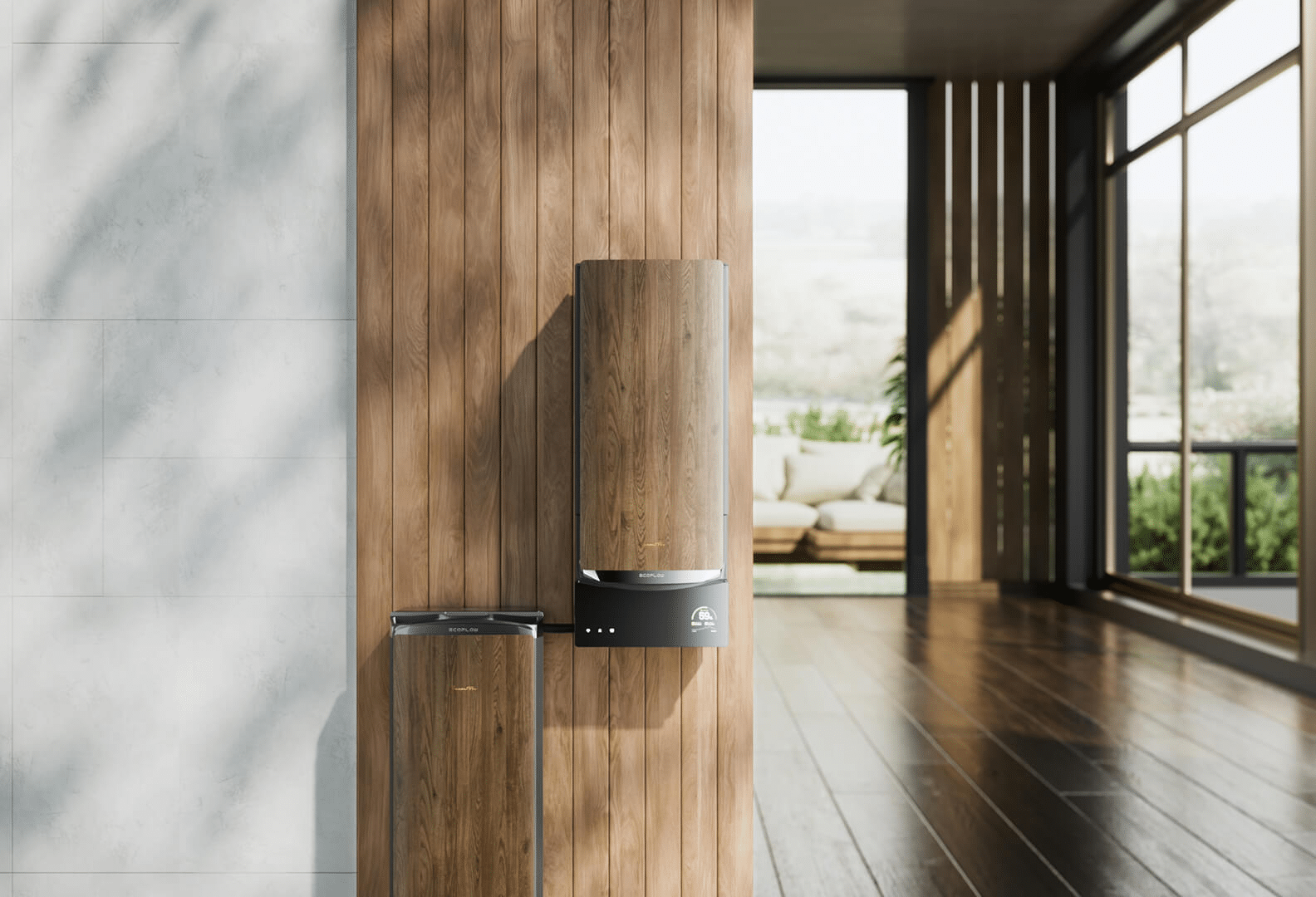When the power goes out, most homeowners reach for one of two solutions — a traditional fuel-powered generator or a modern, home battery backup system. Both can keep your lights on, but they operate very differently.
Understanding their advantages, costs, and long-term implications can help you choose the right system for your household’s energy needs.
The New Era of Home Backup Power
For decades, standby generators — typically running on gasoline, propane, or natural gas — were the go-to option for home backup power. They were dependable, powerful, and capable of running for long periods as long as fuel was available.
But times have changed. As energy costs rise and climate concerns grow, many homeowners are turning to fuel-free home battery backup systems. These systems store electricity from the grid or from solar panels and release it when you need it. They’re quieter, cleaner, and easier to maintain, making them an appealing alternative for the modern home.
Both options can keep your appliances running, but the differences go much deeper. Let’s explore how each works — and which one might be best for your situation.
How Traditional Standby Generators Work
A standby generator is essentially a small power plant installed outside your home. It connects to your electrical panel through an automatic transfer switch and monitors grid power 24/7.
When an outage occurs, the generator detects the loss of power and automatically starts up — typically within seconds. It burns fuel (gasoline, propane, or natural gas) to generate electricity, supplying power directly to your home circuits.
Once the grid is restored, the system shuts itself off and returns to standby mode.
Standby generators are robust and can run continuously for days if they have sufficient fuel. They’re ideal for powering large homes or properties with high energy demands, such as HVAC systems, water pumps, and electric stoves.
However, their reliability comes at a cost — not just financially, but environmentally and logistically.
How a Home Battery Backup System Works
A home battery backup system stores energy instead of generating it. You can charge it directly from the grid during off-peak hours or, ideally, from rooftop solar panels.
When an outage occurs, the system automatically disconnects from the grid and begins supplying power to your home circuits — instantly and silently. Because it stores electricity, there’s no fuel, no emissions, and no noise.
Most systems can power essential appliances like refrigerators, lighting, Wi-Fi routers, and medical equipment for 12 to 48 hours, depending on capacity. Larger modular setups can sustain entire homes for several days, especially when paired with solar power.
The difference between generators and home battery backup systems isn’t just in how they power your home — it’s in how they fit your lifestyle, budget, and long-term goals.
Comparing the Two: Key Factors to Consider
1. Reliability and Performance
Traditional generators are well-known for reliability during long outages. As long as they have access to fuel, they can keep running for days. However, in extended emergencies where fuel supplies are limited, this advantage fades quickly.
Home battery backup systems, on the other hand, depend on stored energy. Most batteries hold 10–30 kWh of usable power, enough to cover essentials for one to two days. When paired with solar panels, they can recharge daily, providing near-unlimited off-grid performance.
If you live in an area with frequent short blackouts, batteries are ideal. But for places prone to week-long outages without solar support, a generator may still have the edge.
2. Fuel and Energy Source
The most obvious difference is fuel. Generators rely on fossil fuels: gasoline, propane, or natural gas. These are effective but come with costs — fluctuating prices, ongoing refueling, and emissions.
A home battery backup system is entirely fuel-free. It draws energy from electricity you already purchase or generate, eliminating the need for refueling. If linked to solar, you essentially run on free, renewable energy.
This makes batteries not only cleaner but also more future-proof, as fossil fuel prices and environmental regulations continue to shift.
3. Noise and Emissions
Ask anyone who’s used a gas generator — they’re loud. The sound of a generator running can reach 60–90 decibels, comparable to heavy traffic. That may not seem bad for an hour, but running all night can disturb both your family and your neighbors.
A home battery backup system operates silently. There’s no engine, no vibration, and no exhaust. This makes it ideal for residential neighborhoods, apartments, or eco-conscious homeowners who want peace and quiet during blackouts.
Moreover, batteries produce zero emissions. Generators, by contrast, release carbon monoxide and other pollutants, making them unsafe to use indoors or near open windows.
4. Maintenance and Longevity
Generators require routine maintenance: oil changes, filter replacements, and periodic testing. Neglecting upkeep can lead to startup failures just when you need them most.
Battery systems are nearly maintenance-free. Once installed, a home battery backup system can last 10–15 years with minimal attention. There are no fluids to change or mechanical parts to service.
Additionally, software updates and mobile apps make monitoring easy — you can check charge levels and energy flow from your phone.
5. Cost Considerations
At first glance, generators appear more affordable. A mid-sized standby generator with professional installation typically costs between $5,000 and $12,000, depending on capacity and fuel type.
A home battery backup system can range from $10,000 to $25,000, especially when paired with solar. However, the long-term economics favor batteries:
- No ongoing fuel costs
- No oil or filter replacements
- Lower energy bills through time-of-use optimization
- Eligibility for federal and state incentives
The 30% Federal Investment Tax Credit (ITC) applies to battery systems (and solar installations), potentially saving thousands of dollars upfront. Generators, by contrast, do not qualify for such incentives.
Over time, the savings from reduced maintenance and fuel, plus available tax credits, narrow or even eliminate the initial price gap.
6. Environmental Impact
From an environmental perspective, home battery backup systems clearly win. They reduce carbon emissions, enable renewable energy use, and support a cleaner grid.
Generators burn fossil fuels, emitting greenhouse gases and air pollutants. While modern models are more efficient than older ones, they still contribute to noise and air pollution, particularly when used frequently.
For homeowners focused on sustainability or living in eco-conscious communities, batteries align better with long-term goals.
7. Installation and Space Requirements
A generator typically requires outdoor installation on a concrete pad with proper ventilation and access to fuel lines. The setup process involves plumbing for gas lines and electrical wiring, which can take several days.
Battery systems are more flexible. A home battery backup can be installed indoors (like a garage or utility room) or outside, as long as it’s in a weather-protected area. They also take up less space and don’t require fuel connections.
8. Safety
Fuel-based generators come with risks — carbon monoxide poisoning, fuel leaks, and fire hazards if not properly maintained. These dangers make indoor use impossible.
Batteries are much safer. Modern lithium-iron-phosphate (LiFePO₄) chemistries are thermally stable, non-flammable, and come with built-in safety systems that monitor voltage and temperature.
This makes home battery backup solutions particularly appealing for families or properties with limited outdoor space.
Which Option Fits Your Lifestyle?
The right choice depends largely on your needs, priorities, and local conditions.
- Choose a Generator if:
- You live in an area prone to long power outages lasting several days or weeks.
- You already have a reliable propane or natural gas supply.
- You need to power heavy-load systems continuously without solar integration.
- Choose a Home Battery Backup System if:
- You experience frequent short outages or rolling blackouts.
- You want quiet, maintenance-free, and emission-free power.
- You’re integrating solar energy for long-term sustainability and cost savings.
- You value smart-home integration and energy independence.
For many households, a hybrid approach works best — solar panels plus a home battery backup as the first line of defense, with a smaller fuel generator as a secondary fallback for extended outages.
The Future of Home Backup Power
The energy landscape is shifting rapidly. Advances in battery technology, government incentives, and rising fuel costs are making home battery backup systems more affordable and practical each year.
Meanwhile, traditional generators, though still useful, may become less appealing as environmental standards tighten and renewable energy adoption accelerates.
In the near future, more homes will rely on solar-plus-battery systems that automatically balance generation, storage, and consumption. Smart energy management will replace manual fuel refills, and quiet battery systems will take the place of roaring engines.
Conclusion
Both traditional generators and home battery backup systems can protect your home when the grid fails — but they serve different lifestyles and priorities.
If you value simplicity, sustainability, and silence, a fuel-free solution is hard to beat. If you need continuous, heavy-duty power for extended periods, a generator may still have its place.
Ultimately, the best system is one that keeps your home safe, comfortable, and resilient — today and for years to come.








